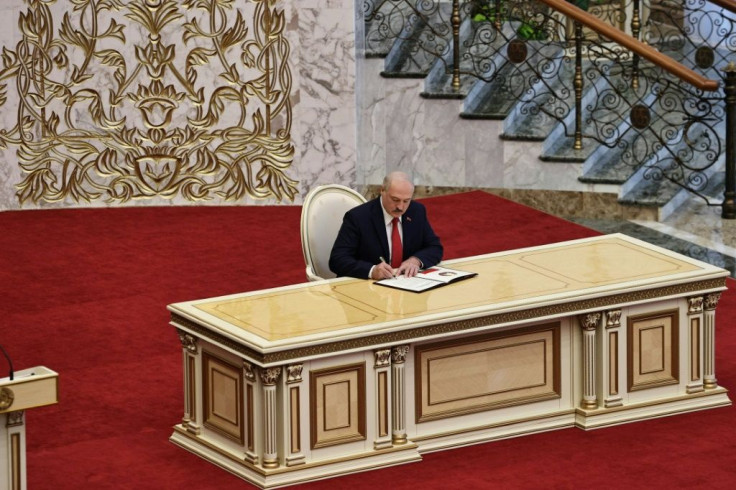European Union Says Lukashenko Not The Legitimate President Of Belarus
KEY POINTS
- The EU said it was reviewing its relationship with Belarus, potentially cutting off much needed funding to the country
- The EU encouraged peaceful protests against the results of the controversial Aug. 9 election to continue
- Lukashenko has been accused multiple times of rigging elections after his election in 1994
The European Union said Thursday that Aleksandr Lukashenko lacked "any democratic legitimacy" as president of Belarus while the country remains in a state of flux following the disputed August election and his “inauguration” did not reflect the will of the people
“This ‘inauguration’ directly contradicts the will of large parts of the Belarusian population, as expressed in numerous, unprecedented and peaceful protests since the elections, and serves to only further deepen the political crisis in Belarus,” the EU said in a press release.
“The European Union’s position is clear: Belarusian citizens deserve the right to be represented by those they freely choose through new inclusive, transparent and credible elections.”
The EU said it would be reviewing its funding to Belarus in the wake of the elections and ongoing protests across the country. This could be a massive economic blow to the country, which relies on funding from the EU, which pledged nearly $220 million before to election to assist with government projects and fight the coronavirus pandemic.
Belarus has in an apparent state of flux since the 2020 presidential election on Aug. 9, when Lukashenko claimed victory over his opponent, Sviatlana Tsikhanouskaya, with a reported 80% of the vote. However, opposition leaders openly challenged the results of the election, because of alleged widespread voter fraud. Pro-democracy protests that began in May resumed in Minsk, as well, and have continued for nearly two months.
The EU praised the people of Belarus for protesting and encouraged them to continue until fair elections could be held. The organization also implored Belarus officials to cease any violence towards peaceful protests against Lukashenko’s presidency.
“We are impressed and moved by the courage of the Belarusian people who continue to demonstrate peacefully for democracy and for their fundamental rights despite the brutal repression of the Belarusian authorities,” the EU said. “We stand in solidarity with them and fully support their democratic right to elect their president through new free and fair elections under the OSCE/ODIHR’s supervision.”
“We reiterate our expectation that the Belarusian authorities immediately refrain from any further repression and violence directed against the Belarusian people and immediately and unconditionally release all those detained, including political prisoners.”
Since first being elected in 1994, Lukashenko has been repeatedly accused of rigging elections to remain in power. Multiple poll workers appeared to corroborate the accusations surrounding the Aug. 9 election, telling the Associated Press that multiple violations were discovered during counts but seemingly brushed aside to help Lukashenko.
One poll worker, Valeria Artikhovskaya, told the Associated Press on Sept. 1 that she didn’t know the actual results from her own district.
“I said I wouldn’t sign the protocol because it’s a crime, it’s fraud. (I said,) ‘Allow me to recount these ballots,’ and they refused. I didn’t sign the protocol and left the precinct,” Artikhovskaya said. “My conscience is dearer to me.”

© Copyright IBTimes 2025. All rights reserved.





















